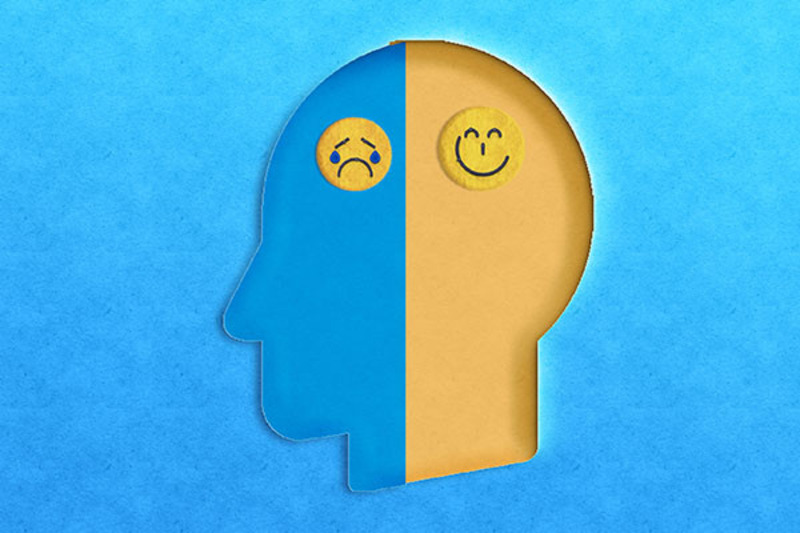Understanding Cognitive Distortions and Their Influence
Feb 06, 2024 By Madison Evans
Cognitive distortions, habitual thought patterns that inaccurately interpret reality, often originate negative thinking. These distortions can profoundly affect mental health and well-being. Therefore, recognizing and addressing them is crucial to foster a positive mindset. Let’s dive into the details.
1. The Role of Cognitive Distortions in Shaping Thoughts
Our thoughts and emotions are significantly shaped by the active role of cognitive distortions. Black-and-white thinking, which limits our ability to perceive life's nuances by viewing situations as either entirely positive or negative, plays a substantial part in this process. Overgeneralization is drawing broad conclusions from isolated incidents. It distorts our worldview. It creates an overarching narrative that paints every experience with the same brushstroke, the one-size-fits-all misjudgment. We actively take responsibility for events beyond our control through personalization, which unnecessarily burdens our mental well-being. By comprehending the influence of these distortions and consciously challenging them, we can reshape our thoughts to foster a more balanced and adaptive mindset.
Beyond simple awareness, unraveling the complexity of cognitive distortions requires active engagement in cognitive restructuring. It’s a process that prompts individuals to interrogate and supplant irrational beliefs with more rational alternatives. This transformative journey endows individuals with the power to reestablish control over their thoughts. Thus, paving the way for enhanced emotional well-being and mental resilience.
- Consideration: While addressing cognitive distortions, it's essential to be patient with oneself. The process of challenging ingrained thought patterns takes time and consistent effort.
- Caution: Avoiding self-criticism is crucial during this process. Be kind to yourself as you navigate the path of reshaping your thought patterns.
2. Identifying Common Cognitive Distortions
A crucial step in managing negative thought patterns is recognizing common cognitive distortions. The tendency to draw sweeping conclusions from isolated incidents. Overgeneralization can lead indeed to an exaggerated sense of negativity. Meanwhile, catastrophizing which means anticipating the worst possible outcome is a factor that intensifies anxiety and stress levels. Black-and-White thinking simplifies complex situations excessively, and in turn, it cultivates a rigid perspective. Personalization mistakenly bears the responsibility for uncontrollable events; this adds unwarranted guilt and stress. When individuals identify these distortions, they can break free from their influence to cultivate a more balanced thought process effectively.

Individuals, aware of these distortions, can derive substantial benefits from practicing cognitive diffusion techniques. It’s a process that requires the observation of thoughts, rather than immediate acceptance or action. By deliberately cultivating mental distance from distorted ideas, individuals stand to gain heightened control over their reactions and emotions.
- Consideration: Regular self-reflection aids in identifying cognitive distortions as they arise, allowing for timely intervention.
- Fact: Cognitive distortions are not exclusive to specific demographics; they can affect individuals of all ages and backgrounds.
3. Breaking the Cycle of Negative Thinking
A proactive approach through cognitive-behavioral strategies addresses the need to confront cognitive distortions. Challenging and replacing negative thought patterns with more realistic, balanced ones characterizes cognitive restructuring. Another effective technique is mindfulness. It encourages individuals and fosters a non-reactive awareness by prompting people to observe their thoughts without judgment. Individuals can actively break the cycle of negative thinking and cultivate a healthier mindset by adopting these strategies.
Upon closer examination of cognitive restructuring, we discern its foundations in evidence-based therapeutic approaches. It’s a technique frequently employed within the realm of Cognitive-Behavioral Therapy (CBT). This approach has proven effective, underscored by the criticality of tackling distorted thoughts for comprehensive well-being, across an array of mental health conditions.
- Caution: Consistency is key in adopting cognitive-behavioral strategies. Gradual, sustained efforts yield more lasting results.
- Noteworthy Information: Cognitive restructuring not only addresses negative thinking but can also contribute to improved overall mental resilience.
4. Seeking Professional Support for Cognitive Distortions
Individuals who grapple with persistent negative thinking must take a crucial step towards recovery which is seeking professional help. Psychologists and therapists, mental health professionals offer specialized interventions as well as tailored strategies to address cognitive distortions. In therapy sessions, these provide not just safety but also support. The individual can delve into their thoughts, understand them better, and ultimately reframe those negative patterns that have been causing so much harm. This process fosters enduring positive change.
Mental health professionals deploy a diverse range of therapeutic modalities, incorporating mindfulness and acceptance strategies in techniques like dialectical behavior therapy (DBT) and acceptance-and-commitment therapy (ACT). These augment traditional cognitive-behavioral approaches to furnish more holistic treatments.
- Fact: Professional support is not limited to severe mental health conditions; therapy can be beneficial for individuals facing persistent negative thought patterns.
- Caution: Finding the right therapist is essential. It may take some time to identify a professional who aligns with your needs and goals.
5. Cultivating a Positive Mindset for Better Mental Health
To cultivate a positive mindset, more than merely recognizing cognitive distortions is required, you must proactively strive towards self-improvement. Actively challenging distorted thoughts, incorporating positive affirmations, and practicing gratitude are effective strategies. Furthermore, embrace a holistic approach to mental health involving lifestyle factors such as regular exercise, sufficient sleep, and maintaining an equilibrium in your diet. These all contribute significantly to overall well-being.

Delving deeper into the concept of the positive affirmation unveils their profound impact on neuroplasticity. Regular usage of these affirmations, by reshaping neural pathways, fosters an inherently more optimistic, constructive mindset. This underscores cognitive practices and neurological processes are intricately linked to attain superior mental health.
- Consideration: The journey towards a positive mindset is personal and unique. Embrace strategies that resonate with you individually.
- Noteworthy Information: Regular physical activity not only improves mood but also enhances cognitive functions, contributing to a positive mindset.
Conclusion
To conclude, comprehending the influence of cognitive distortions on negative thinking proves indispensable to enhancing mental health. Individuals can liberate themselves from the cycle of negativity by identifying, challenging, and reframing these distorted thoughts. Key steps towards elevated mental well-being include seeking professional support when necessary. Moreover, through proactive strategies, you must cultivate a positive mindset. Bear in mind the pivotal role your thoughts play in shaping reality. Thus, seizing control of them is a potent investment, a robust safeguard, for your mental health.







